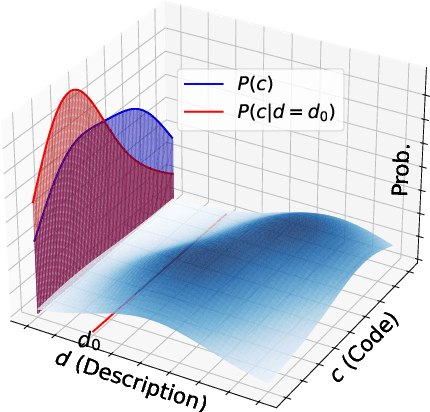GiFT: Gibbs Fine-Tuning for Code Generation
Paper and Code
Feb 17, 2025



Training Large Language Models (LLMs) with synthetic data is a prevalent practice in code generation. A key approach is self-training, where LLMs are iteratively trained on self-generated correct code snippets. In this case, the self-generated codes are drawn from a conditional distribution, conditioned on a specific seed description. However, the seed description is not the only valid representation that aligns with its intended meaning. With all valid descriptions and codes forming a joint space, codes drawn from the conditional distribution would lead to an underrepresentation of the full description-code space. As such, we propose Gibbs Fine-Tuning (GiFT), a novel self-training method inspired by Gibbs sampling. GiFT allows self-generated data to be drawn from the marginal distribution of the joint space, thereby mitigating the biases inherent in conditional sampling. We provide a theoretical analysis demonstrating the potential benefits of fine-tuning LLMs with code derived from the marginal distribution. Furthermore, we propose a perplexity-based code selection method to mitigate the imbalanced long-tail distribution of the self-generated codes. Empirical evaluation of two LLMs across four datasets demonstrates that GiFT achieves superior performance, particularly on more challenging benchmarks.
 Add to Chrome
Add to Chrome Add to Firefox
Add to Firefox Add to Edge
Add to Edge